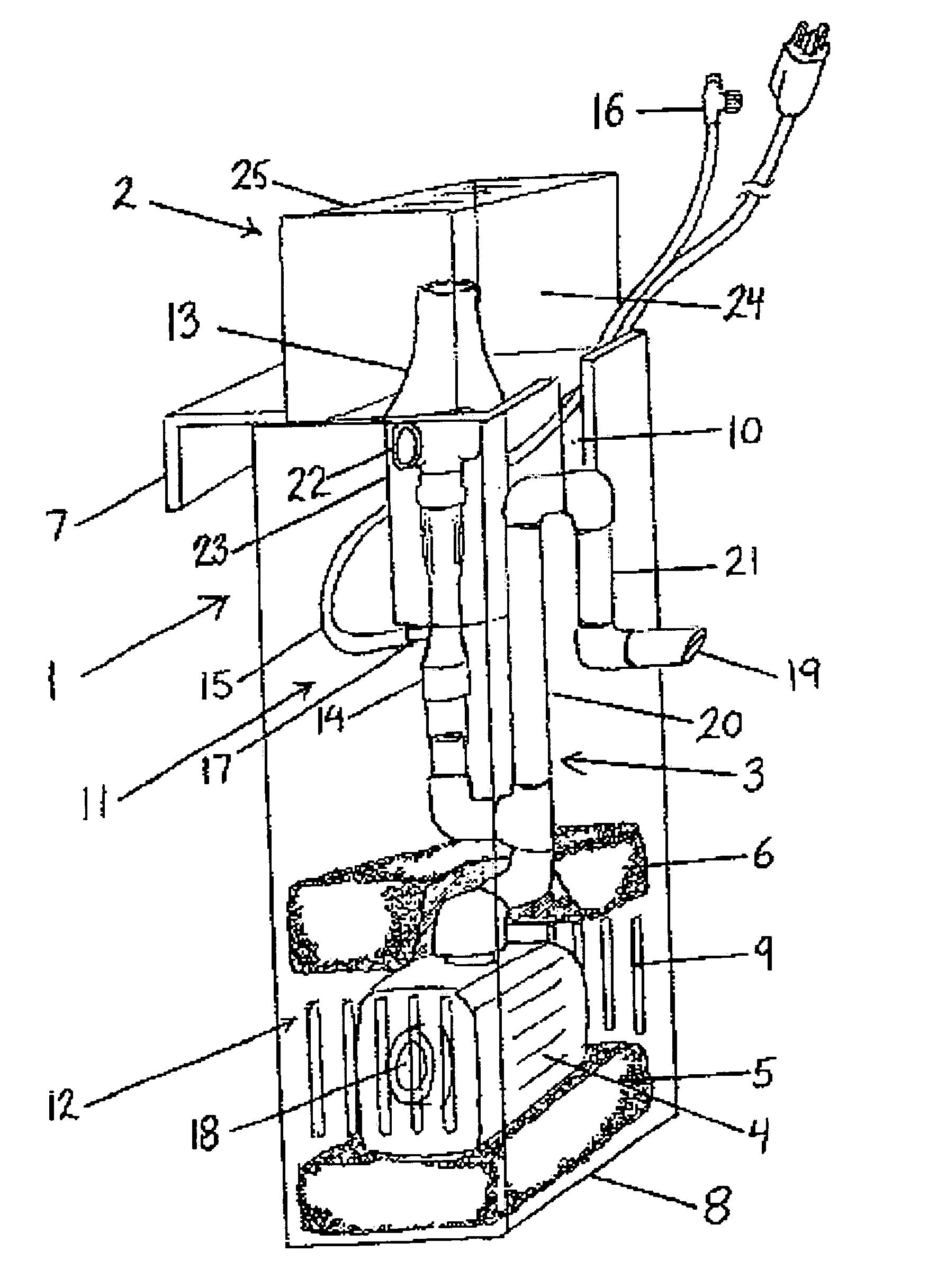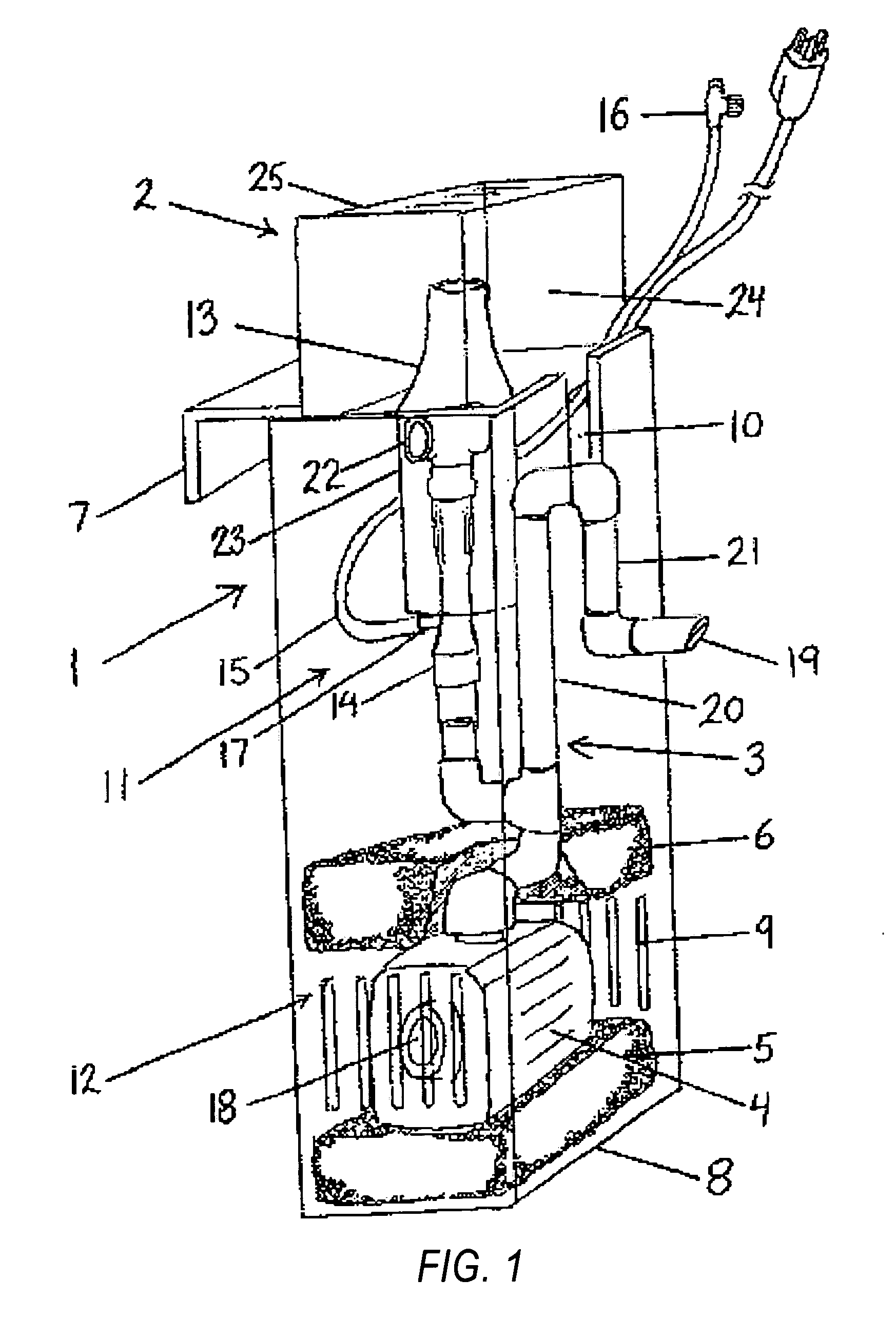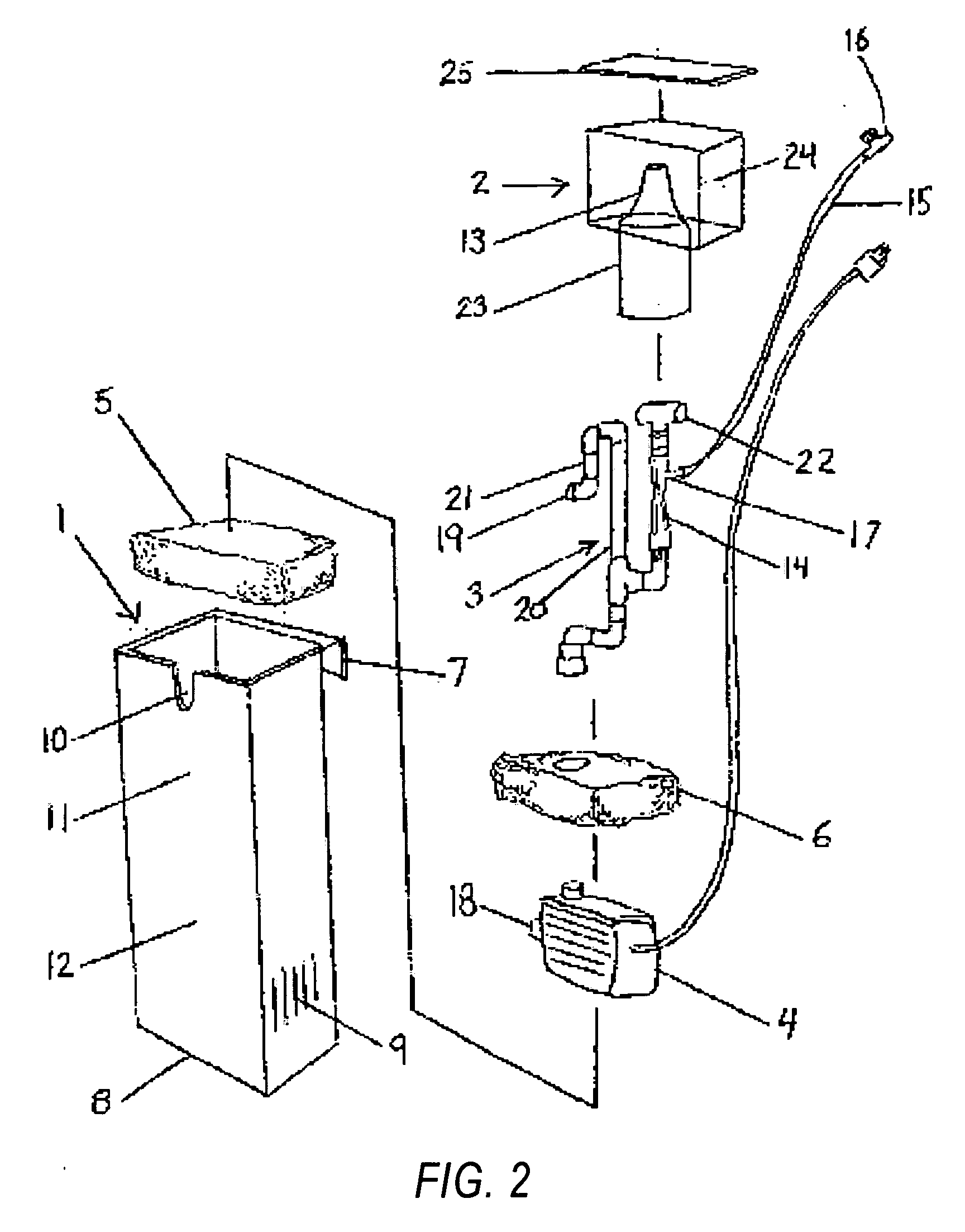Aquarium filter
a filter and aquarium technology, applied in the field of aquarium filtering and water movement, can solve the problems of only basic filter performance, floating waste and debris on the surface of the aquarium, and inability to meet the needs of aquarium water treatment, etc., to achieve the effect of reducing costs, reducing failure points, and reducing costs
- Summary
- Abstract
- Description
- Claims
- Application Information
AI Technical Summary
Benefits of technology
Problems solved by technology
Method used
Image
Examples
Embodiment Construction
[0022] In one embodiment, the aquarium filter includes five components: an outer casing (1), a protein skimmer (2), a plumbing assembly (3) with removable pump (4), a lower sponge (5) and an upper sponge (6) which perform the functions of biological and mechanical filtration. The outer casing (1) is made of 3 / 8 inch thick black acrylic plastic. It is formed with four sides, a bottom and is open from the top. The outer casing has a rear hanger (7) which enables it to hang on the inside of any of the four walls of an aquarium. It has a substantially flat bottom (8) allowing it to be positioned upright anywhere inside on the bottom of an aquarium. The outer casing has a plurality of openings towards the bottom of both sides (9). This plurality of openings allows water below the surface of the aquarium to enter the outer casing. On the front panel of the outer casing there is an opening at the top center (10) which allows water at the surface to enter and is where the plumbing assembly ...
PUM
 Login to View More
Login to View More Abstract
Description
Claims
Application Information
 Login to View More
Login to View More - R&D
- Intellectual Property
- Life Sciences
- Materials
- Tech Scout
- Unparalleled Data Quality
- Higher Quality Content
- 60% Fewer Hallucinations
Browse by: Latest US Patents, China's latest patents, Technical Efficacy Thesaurus, Application Domain, Technology Topic, Popular Technical Reports.
© 2025 PatSnap. All rights reserved.Legal|Privacy policy|Modern Slavery Act Transparency Statement|Sitemap|About US| Contact US: help@patsnap.com



